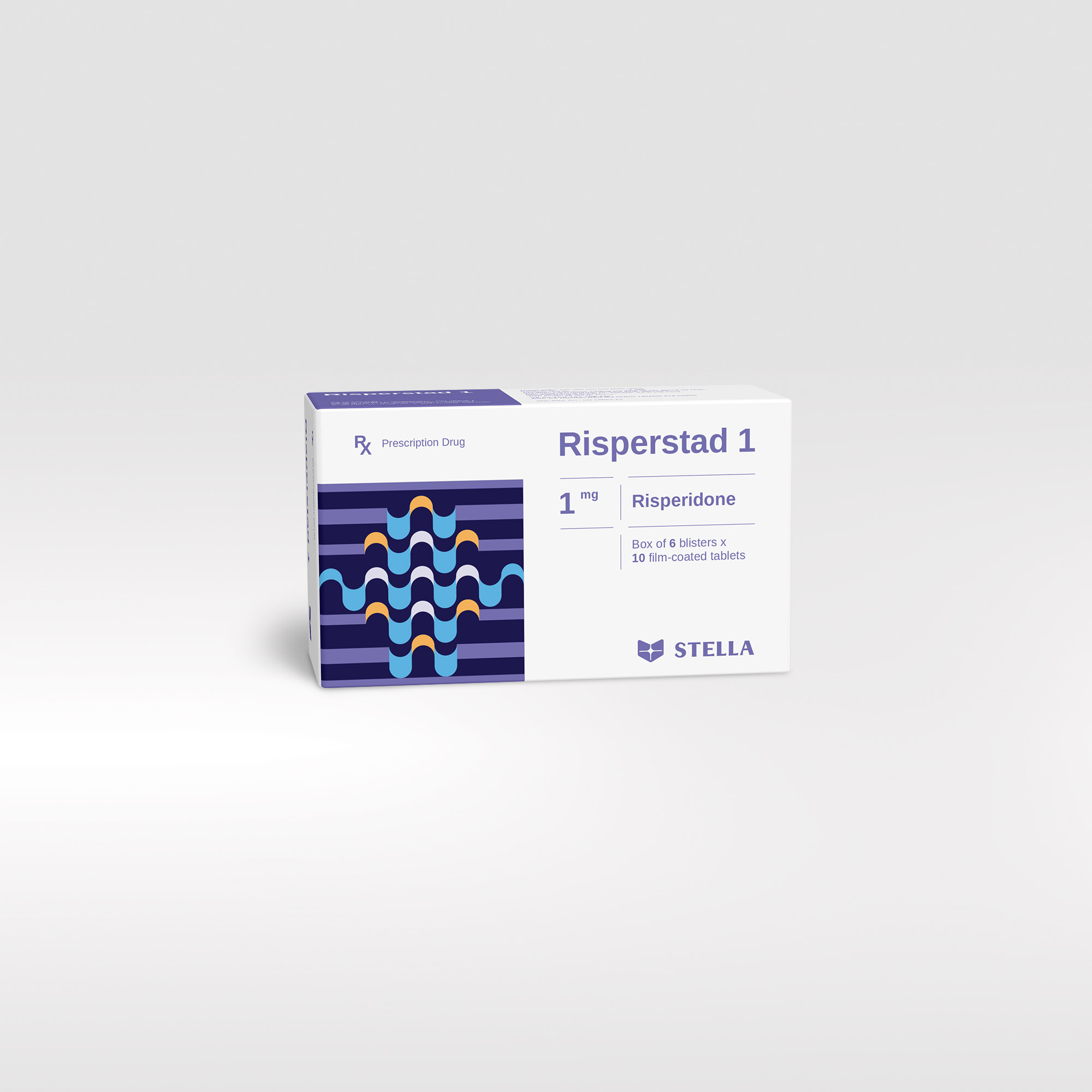Indications:
- Treatment of schizophrenia and other psychoses.
- Short-term treatment of acute manic or mixed episodes associated with bipolar disorder.
- Treatment of irritability associated with autistic disorder in children.
Dosage:
Adults:
Schizophrenia: Initial dose is 2 mg daily; this may be increased to 4 mg daily on the second day, and subsequently adjusted as required in steps of 1 or 2 mg according to tolerance, at intervals of not less than 24 hours. The maximum dose is 16 mg daily.
Mania in bipolar disorder: Initial dose is 2 to 3 mg once daily. Dosage adjustments of 1 mg daily up to a total of 6 mg daily may be made at intervals of not less than 24 hours.
Children:
For schizophrenia in adolescents aged 13 to 17 years or acute manic or mixed episodes associated with bipolar disorder in children and adolescents aged 10 to 17 years: Initial dose of 0.5 mg once daily in the morning or in the evening. This may be increased in steps of 0.5 or 1 mg to a dose of 3 mg daily for schizophrenia or 2.5 mg daily for mania, at intervals of not less than 24 hours. The maximum dose is 6 mg daily.
For the treatment of irritability associated with autistic disorder in those aged 5 to 16 years:
- < 20 kg: The initial dose is 0.25 mg daily; increased to 0.5 mg daily after at least 4 days and subsequently adjusted as required in steps of 0.25 mg, at intervals of no less than 2 weeks. The maximum dose is 1 mg daily. Caution should be exercised with dosage for children < 15 kg.
- ≥ 20 kg: The initial dose is 0.5 mg daily; this may be increased to 1 mg daily after at least 4 days and subsequently adjusted as required in steps of 0.5 mg, at intervals of no less than 2 weeks. The maximum dose is 2.5 mg daily in those weighing over 20 kg and 3 mg daily in those > 45 kg.
- For those who experience persistent somnolence, the total daily dose may be given as a single dose at bedtime, or in 2 divided doses, or in a reduced dose.
Elderly or debilitated patients: An initial dose of 0.5 mg twice daily slowly increased in steps of 0.5 mg twice daily, to a dose of 1 to 2 mg twice daily. Above doses of 1.5 mg twice daily, increases should be made at intervals of at least 1 week.
Hepatic or renal impairment: The initial dose is 0.5 mg twice daily; slowly increased in steps of 0.5 mg twice daily, to a dose of 1 to 2 mg twice daily. Above doses of 1.5 mg twice daily, increases should be made at intervals of at least 1 week.
Usage:
Risperstad 1 is administered orally without regarding to meals; either in once-daily dose or in 2 equally divided doses daily.









